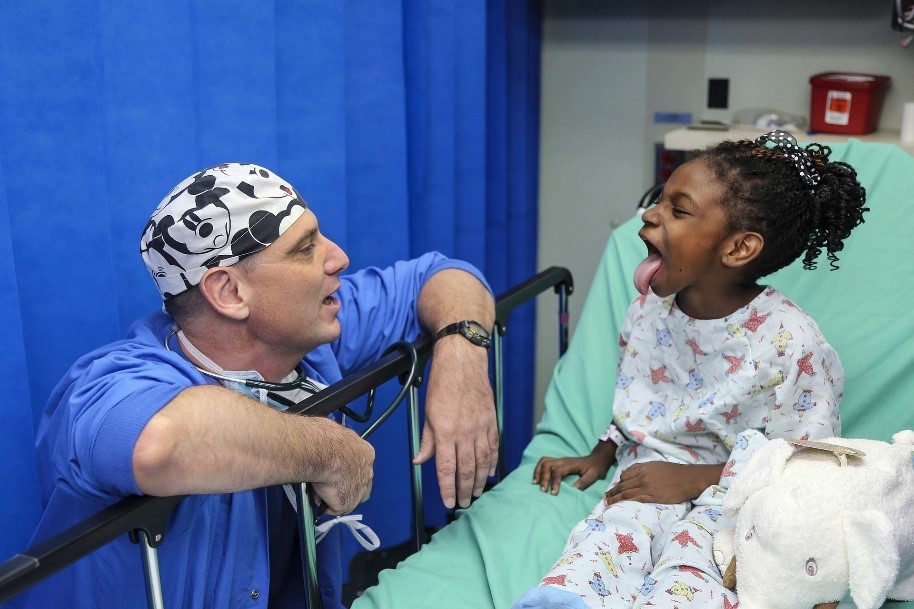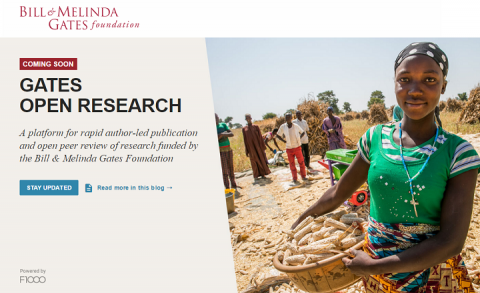Bringing our research and innovation ethos to publishing
| 26 June, 2017 | Rosalind Smyth & Martin Elliott |
|

|
Rosalind Smyth, Director of UCL Great Ormond Street Institute of Child Health, and Martin Elliott, UCL Professor of Cardiothoracic Surgery discuss the launch of the new publication platform UCL Child Health Open Research

Medical innovation can be described as the use of something new, be it drugs, process or procedure, to alter the course of events. Reciprocally, research could be described as generating data that tests a conventional scientific method by comparing with a new one or placebo. We believe that UCL Child Health Open Research will bring these two conventions together – innovation and research – by changing how researchers at UCL Great Ormond Street Institute of Child Health and UCL researchers working on child health distribute the results of their work.
This publication platform will be truly open access, by ensuring that not only the results featured in the published articles, but also the underlying data are accessible immediately. Having the data available for others to analyse – and potentially add to – is a real boon and has the potential to bring about a profound change in medicine. This level of openness in transparency means the results and data will receive a new degree of scrutiny and help build trust with other researchers and patients.
Innovation is part of our history
Just as we have often led the way in the area of child health research, it seems fitting that we lead the way by being the first institute to launch this kind of publication platform.
UCL Great Ormond Street Institute of Child Health, with its clinical partner Great Ormond Street Hospital for Children, forms the largest concentration of children’s health research in Europe. Our history is a long one, we began life as the Hospital for Sick Children in 1852.
In the 165 years that we have been around, our focus has been on caring for sick children and teaching others to do so, but also researching ways of improving child health. Innovation has always been part of who we are. We were one of the first paediatric centres to work on preventative medicine in 1945, we opened our clinical genetics unit in 1956, and the first bone marrow transplant in a child was performed at Great Ormond Street Hospital in 1979. Just as we have often led the way in the area of child health research, it seems fitting that we lead the way by being the first institute to launch this kind of publication platform.
Getting our results out there quickly and transparently
Getting these results out there openly in a much speedier fashion means they can start making an impact sooner.
Publishing on UCL Child Open Research will mean that the results of our research can be made available in an immediate and transparent way, helping to inform decisions and other research in child health. The work that we carry out often makes a difference to children’s lives around the world. Getting these results out there openly in a much speedier fashion means they can start making an impact sooner.
We believe that the transparent peer review model that UCL Child Health Open Research will use, similar to that used by F1000Research, Wellcome Open Research and Gates Open Research, means that the readers will be able to decide on the merit of our researchers’ work based on what’s contained in their article, as well as the reports of those of who have reviewed it. The open data policy employed by our publication platform will enable others to attempt to reproduce or re-analyse the findings of our researchers.
Publishing all results worth publishing
As it will publish all results with no editorial bias, this means none of our work will be in vain.
We see UCL Child Health Open Research as an additional publishing resource for our researchers. The platform will assist in the dissemination of a broad range of article types: traditional research articles, clinical trials, case reports, systematic reviews, data sets and many others. As it will publish all results with no editorial bias, this means none of our work will be in vain. Results and data will not sit at the bottom of a filing cabinet or gather digital dust on a USB key because a journal doesn’t think it’s a good fit or they present a negative result.
Partnering for success
Much of UCL Great Ormond Street Institute of Child Health’s success in the past has been through partnerships. That is why we are very positive about our partnership with F1000, joining Wellcome and the Bill & Melinda Gates Foundation in changing how the academic publishing system works. If you want to keep abreast of our next steps in this initiative you can sign-up for updates here.
You can read more about UCL Child Health Open Research and other open research publication platforms from Rebecca Lawrence, Managing Director of F1000 in this blog.

|



